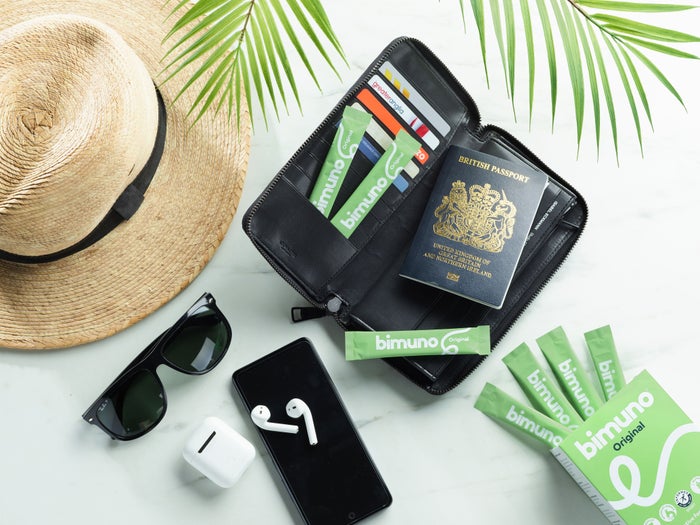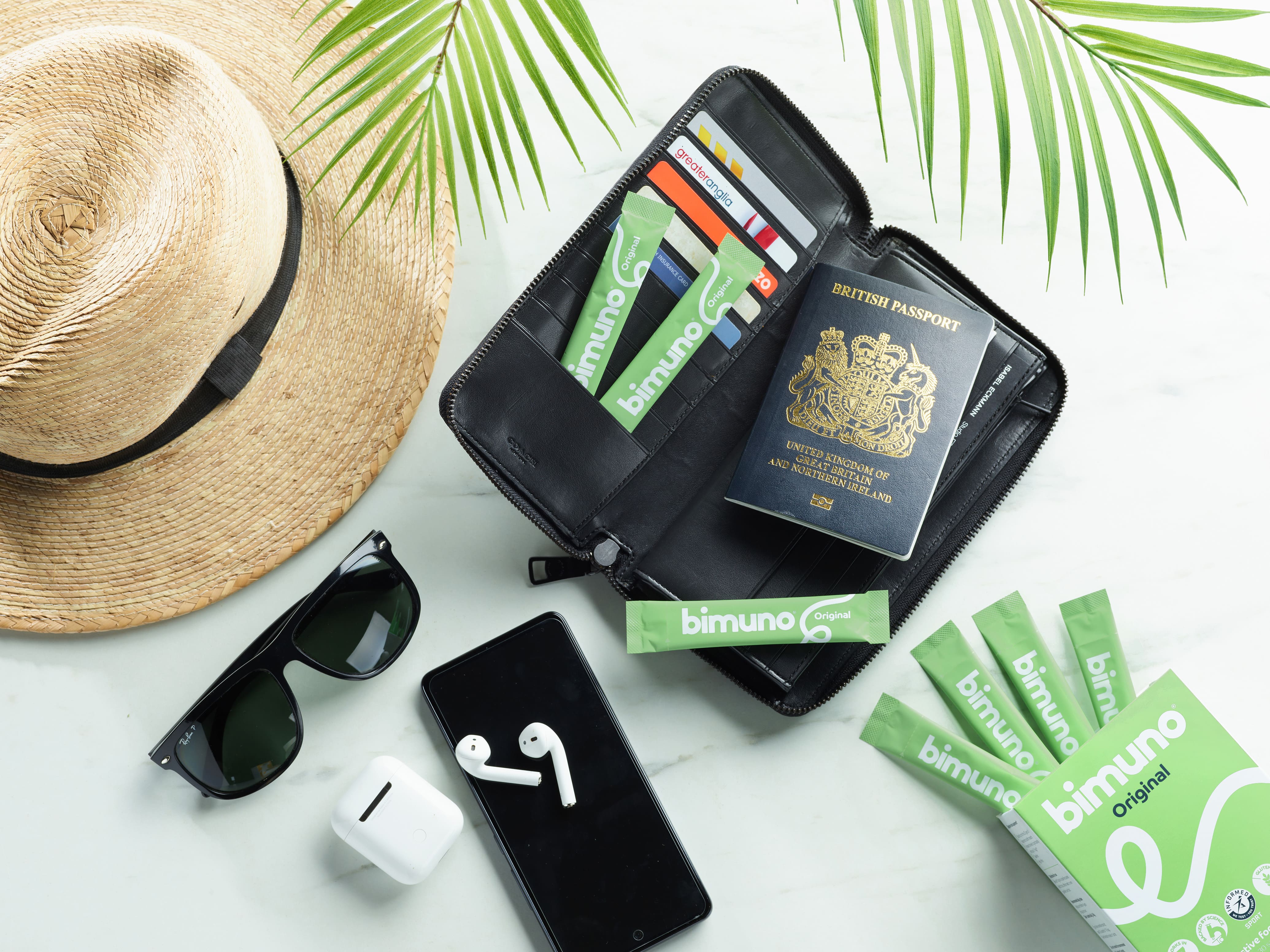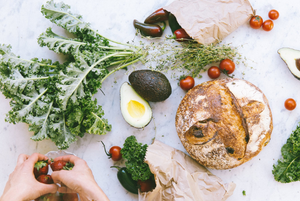Dreaming of sun-soaked beaches, that next metropolitan city break or immersing yourself in authentic cultures from around the globe?
You’re not alone – as international travel reopens and summer holidays are back on the agenda, many of us will be making up for lost time in far-flung destinations across all corners of the world. In fact, the global travel market is expected to reach an astonishing $1.5 trillion1 by 2027 and it’s thought that altogether, around 1 in 10 of the world’s jobs is related to travel and tourism.
But after packing your summer clothes, buying travel insurance and arranging for the cat to be fed, it’s important to make sure health and wellbeing is top of the agenda, no matter where in the world we are!
What is Traveller’s Diarrhoea (TD)?
We know that gut health is important, but we often don’t think about how the environment around us impacts or changes it. This includes when we travel to far-off locations.
Traveller’s Diarrhoea (TD) is a term for the temporary, but often severe, GI infection that we can pick up when abroad.
You may perhaps not have heard of TD, but you almost certainly know someone that has had it! Studies show that as many as 20-50% of international travellers develop diarrhoea, with certain areas and environments increasing the likelihood.

Fortunately, most people recover within four days but about 10% of us may have symptoms for over a week and having to miss out on holiday activities is not how we want to spend our valuable time.
So, how can we be mindful of this when we are ticking off our holiday preparation list?
As well as packing some oral hydration sachets and anti-diarrhoea treatments in our suitcases in case we develop 'Delhi belly' or 'Montezuma's revenge’, it's good practice to make sure that you have a list of the nearest pharmacies or clinics handy, wherever you will be staying.
Where are the high-risk areas?
The organisms that cause TD are commonly reported worldwide, however, transmission appears much more likely in countries which have lower food hygiene standards, inadequate sanitation facilities and lack of access to clean water.
Known high-risk areas include most of Asia, the Middle East, Africa, and Latin America. In fact, more than 20 percent of travellers from a high-income country may experience TD in these areas.
Intermediate-risk areas include Southern Europe, Israel, South Africa, some parts of the Caribbean and the Pacific islands, with estimated incidence rates of between 8%-20%.
Tips to protect your gut before you travel
Over half the cases of TD are caused by bad and sometimes pathogenic bacteria. Simplistically, these types of bacteria compete for space with ‘good bacteria’ in your gut. The gut is a finite space – the amount of bacteria inhabiting it is not limitless, which means that we must always be mindful of its composition.
Why not learn more about the helpful bacteria that help keep our body functioning at its best? Click here to learn more on our blog!
The concept of ‘competitive exclusion’ tells us that the more good bacteria there is in the gut, the less space there is for the potentially ‘bad’. They both compete for the same space in your gut, so a well-supported gut with plenty of beneficial bacteria can help to deprive the less favourable types.
You can feed (and therefore increase) your good bacteria by eating a diet rich in fermentable fibre. So, it would be sensible to fill your diet full of fermentable fibre found in beans, lentils, fruit and vegetables for a few weeks before you travel.
In fact, it's what we should be doing every day to maintain our gut health but fewer than 10% of us do. Whilst not all cases of TD are caused by bacteria, this is one way in which we can help to maintain our gut health before we travel.
Supporting better gut health is always a good habit to get into, but especially when aiming to minimise any disruption to the important bacteria. Prebiotics, which nourish beneficial bacteria and encourage them to grow, are one way to approach this.
Prebiotic fibre can be found naturally occurring in a wide array of fruits and vegetables, and can also be found in concentrated amounts through prebiotic supplements, such as Bimuno Original*.

Tips to avoid diarrhoea when travelling
Obviously, it makes sense to try to avoid picking up harmful bacteria when you are away. Often the bad bacteria which cause TD are spread by bad hygiene practices, which means that the person preparing your food hasn't washed their hands properly and the kitchen where food is prepared isn't hygienic.
With this in mind, try to avoid uncooked foods as heating foods to a high temperature will kill many species of bacteria. Even when the food is cooked, avoid dishes that look like they have been hanging around for a while, giving bacteria the chance to grow. In the same way avoid drinking unbottled water unless it's boiled, which kills most bacteria.
What to do if you do get Traveller’s Diarrhoea
If you can, let the infection run its natural course and keep yourself hydrated with oral hydration sachets and only consider taking diarrhoea prevention products if you need to travel.
Don’t forget – a medical professional or pharmacist should always be your first port of call, and particularly if you have TD longer than a few days, or if your symptoms get worse. Medical advice can be found here.
* Please note that Bimuno DAILY should not be considered a medical device, nor an alternative to prescribed pharmaceutical treatments from a healthcare professional.References
- Research and Markets -Business Travel Market: Global Industry Trends, Share, Size, Growth, Opportunity and Forecast 2022-2027
- Office for National Statistics- 'Travel Trends 2018' by Giles Horsfield
- Medicine Net- Travellers Diarrhoea: Treatment & Prevention by John P. Cunha, DO, FACOEP








